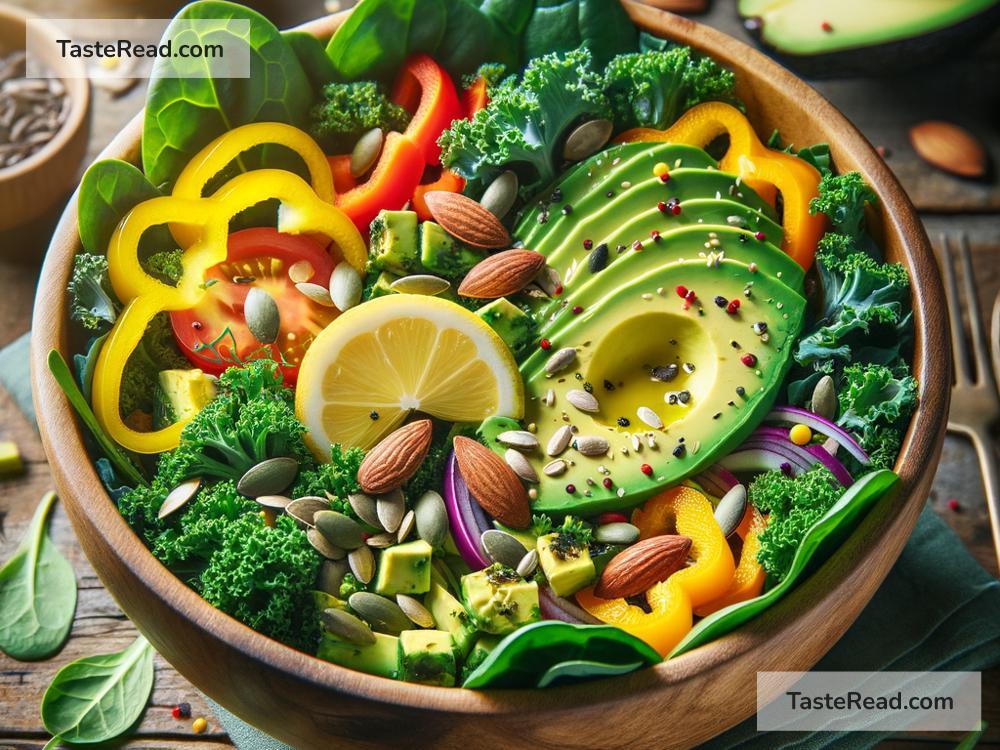Foods That Strengthen Cell Walls: Building a Healthier You
Our bodies are made up of trillions of tiny cells. These cells work together to keep us alive, heal wounds, create energy, and fight off sickness. Each cell has a protective layer called the “cell membrane,” which helps keep it safe and functioning properly. In plants, this protective layer is called the “cell wall,” and while humans don’t have cell walls like plants, the term “strengthening cell walls” is often used to describe improvements to the membranes in our own cells, as well as the nutrients we consume to support healthy cell function.
Eating the right foods can protect and fortify our cells and help them work better. Strong and healthy cells lead to better immunity, lower inflammation, and faster recovery from injuries or illnesses. So which foods can help you build healthier and stronger cells? Let’s explore some nutrient-rich choices that boost your cellular health!
1. Foods Packed With Healthy Fats
Healthy fats play an important role in strengthening the structure of your cell membranes. They act as building blocks that keep cells flexible and strong.
- Avocados: Rich in monounsaturated fats and antioxidants, avocados help keep your cell membranes flexible and protect them from damage.
- Nuts and Seeds: Almonds, walnuts, chia seeds, and flaxseeds are loaded with omega-3 and omega-6 fatty acids. These fats are essential for cell repair and growth.
- Fatty Fish: Salmon, mackerel, and sardines contain omega-3 fatty acids that strengthen cell membranes and protect against inflammation.
2. Fruits and Vegetables Rich in Antioxidants
Antioxidants protect your cells from chemicals called free radicals that can weaken or destroy them. Fruits and vegetables are full of antioxidants and vitamins that shield your cells from oxidative stress.
- Berries: Blueberries, strawberries, and raspberries are high in antioxidants called anthocyanins, which protect and support cellular structure.
- Leafy Greens: Spinach, kale, and broccoli are rich in vitamins C and E, as well as folate, which is important for making new cells.
- Sweet Potatoes: Packed with beta-carotene, sweet potatoes may help defend cell walls from damage and boost overall immune function.
3. Protein Sources for Cell Repair
Proteins provide the necessary building blocks—called amino acids—that your body uses to repair and create new cells. Without enough protein, your cells may struggle to recover from injury or maintain their strength.
- Eggs: Eggs are a powerhouse of amino acids, choline, and nutrients that support cell function.
- Lean Meat and Poultry: Chicken and turkey contain high-quality proteins that help build and repair cells.
- Beans and Lentils: Plant-based proteins like black beans, chickpeas, and lentils are also packed with fiber and minerals that promote cellular health.
4. Whole Grains for Energy and Support
Whole grains are an excellent source of complex carbohydrates, fiber, and B vitamins, all of which are vital for the health and energy of your cells.
- Quinoa: This nutrient-dense grain contains magnesium and iron, which help cells perform their daily functions.
- Brown Rice: High in selenium, brown rice promotes a healthy metabolism and cellular protection.
- Oats: Rich in beta-glucans, oats strengthen the immune cells in your body and promote healthy digestion.
5. Foods High in Minerals for Cell Structure
Cells rely on minerals like zinc, magnesium, potassium, and iron to maintain their structure and carry out important functions. These minerals also help regulate fluid levels inside and outside cells to keep them in balance.
- Dark Chocolate: Don’t feel guilty about your love for dark chocolate! It’s packed with magnesium, which supports healthy cellular processes.
- Bananas: Full of potassium, bananas help maintain proper fluid balance and support nutrient transfer in cells.
- Shellfish: Oysters and clams are rich in zinc, which plays a key role in cell growth and repair.
6. Probiotic-Rich Foods for Gut Health and Cellular Communication
Your gut plays an important role in overall cellular health. A healthy gut supports communication between cells and helps absorb nutrients efficiently. Probiotic-rich foods can improve your gut health, which, in turn, strengthens your cells.
- Yogurt: Packed with live bacteria, yogurt promotes a healthy gut environment and supports nutrient absorption for cells.
- Fermented Foods: Kimchi, sauerkraut, and kombucha are probiotic-rich options that benefit cell health.
7. Hydrating Foods for Cellular Function
Water is essential for every cell in your body—it helps transport nutrients, flush toxins, and maintain healthy cell structure. Foods rich in water can also boost hydration.
- Cucumber: With its high water content and antioxidants, cucumber helps keep your cells hydrated and functioning properly.
- Watermelon: Loaded with water, vitamins A and C, and electrolytes, watermelon supports healthy cells and hydration.
Final Thoughts
Your cells are the foundation of your health, and the foods you eat can significantly impact their strength and performance. Incorporating a combination of healthy fats, antioxidants, proteins, minerals, probiotics, and hydrating foods into your diet can help fortify and protect your cells. Remember, small dietary changes can make a big difference. By choosing nutrient-dense foods, you’re not just eating for today; you’re setting yourself up for a healthier future.
Feed your cells well, and they’ll take care of you in return! Start making mindful food choices and enjoy the benefits of a stronger, healthier you!


